
Trying to understand Jesus’ mission without a sense of the frequent and intense resistance to the “new world order” among Galileans and Judeans would be like trying to understand a contemporary Islamic renewal movement in the Middle East without a sense of the widespread discontent and a variety of movements, including terrorist organizations. From the survey of the various resistance movements among the Galileans and Judeans we may begin to suspect that Jesus was not a completely unique figure…
Political orators such as Cicero used the pesky pirates as a symbolic pretext in their patriotic appeals (Cicero, Leg. Man. 33, 53, 56; cf. Plutarch, Pomp. 24.4—6; Appian, Mith. 94). These arrogant and dastardly latrones (= bandits/terrorists), who had even attacked Roman fleets, posed a threat to the glory of the empire. Imperium therefore was no longer simply a matter of defeating and commanding the obedience of subject peoples and kings. To secure real peace and prosperity, imperium now had to include effective control of territory and the shipping by which goods flowed to the imperial metropolis…
The tactics of the Sicarii…were utterly different and unprecedented in ancient Judea: surreptitious assassinations and kidnappings. Today we would call this terrorism—or, since it came in response to the brutal crucifixions and other repressive attacks with which the Roman governor was terrorizing the Judean peasantry, perhaps the more appropriate term would be counter terrorism. In both their circumstances and tactics the Sicarii resemble certain twentieth-century anticolonial terrorist movements, such as the National Liberation Front in Algeria and the Zionist Irgun Zvai Leumi in Palestine [or Hamas in Gaza]. Given their striking similarities, it makes sense to deal with these ancient Judean terrorists in comparison with studies of modern terrorist groups. People tend to resort to acts of terrorism only when previously available channels of communication have been closed off and other forms of Resistance and Rebellion in Judea and Galilee protest have proved ineffective or futile…
The situation of the Judean and Galilean peasant producers had deteriorated because of a drought and famine in the late 40s, and the ruling elite had apparently taken no steps to alleviate the desperate situation. The people had mounted numerous protests and renewal movements in recent decades, but the high priestly rulers paid no attention. The Roman governors had been unleashing their military forces on both peaceable urban protest and unarmed movements in the wilderness led by popular prophets. During the late 40s and early 50s, the Roman governors became even more brutal in their attempts to crush any expression of unrest…
According to studies of recent terrorist groups, this is just the sort of conditions that result in desperate people resorting to terrorist action as the only way of getting the attention of those who control the situation. Because nonviolent protests were merely met with further violent repression by Roman troops, the Sicarii must have felt that their only recourse was some sort of counterviolence…
Terrorists carry out such actions primarily for their “demonstration effect,” just as the Romans crucified resistant peasants to intimidate the rest of the populace. The Sicarii demonstrated that the collaborators in and beneficiaries of the Roman imperial order were vulnerable. They were also signaling to the elite of the imperial order that those subjected to the imperial order were desperate enough to take extreme action. They may also have intended their killings as punishment for previous exploitation of the people and a warning about further collaboration with the empire and mistreatment of the people.
In retaliation for the widespread revolt in 4 B.C.E., around the time Jesus was born, the Roman general Varus, after burning towns and devastating the countryside, scoured the hills for rebels and eventually had about two thousand men crucified
(War 2.71-76; Ant. 17.295). Later, Roman governors such as Felix (52-60) and Festus (60-62) crucified large numbers of brigands (bandits) as examples of how those who disturbed the imperial order in Palestine would be treated (War 2.253,271). We should keep in mind, of course, that the Romans labeled everyone from vociferous protesters and actual bandits to more serious rebels as “bandits.” The men also crucified along with Jesus of Nazareth, according to the Gospels, were “bandits” [“terrorists”] of some sort (not “thieves”).
This series of quotes comes from Richard Horsley’s 2003 book Jesus and Empire. (Horsley was Distinguished Professor of Liberal Arts and the Study of Religion at the University of Massachusetts, Boston). It’s all that I’m thinking about these days when reading about the Hamas terrorist attack on October 7th and Palestine’s 75 years of brutal military occupation and colonization by the Zionist state of Israel.
Why? Because this is the historical context that actually explains why Jesus was killed: Jesus, the first-century Palestinian Jew, was crucified by a western colonial empire for being a “terrorist” (“agitator,” “rebel,” “rabblerouser,” “social bandit”) on charges of insurrection. This is something I was never taught earning my three degrees in religion and even teaching as an Associate Professor of Christian Studies. I was taught theological and biblical reasons why Jesus died (“atonement,” “sacrifice,” “salvation”), but never the historical reason of why he was killed. And I had some suspicions, but none of them really made any sense. I had to read books on the “historical Jesus” to figure it out on my own.
Of course, one of the many ironies is that Jesus wasn’t actually a terrorist—at least if terrorism involves some kind of direct violence in response to oppression. Jesus was genuinely tempted to use violence (André Trocmé, Jesus and the Nonviolent Revolution), but never really did (unless flipping over tables in the Temple Mount qualifies). But, as William Herzog II points out in Jesus, Justice, and the Reign of God, there were three charges against Jesus: (1) threatening to the destroy the Temple, (2) discouraging people from paying taxes, and (3) claiming to be a king, and Jesus was genuinely guilty of the first two.
So not actually using violence apparently didn’t matter to the Romans. The effect and intent is what mattered; somehow Jesus and his movement terrified the empire and threatened the lucrative Temple-State system, and that had to be dealt with. Empires and colonial powers must constantly oppress their subjects to secure power; they must “take care of business” (or in contemporary Israel’s words, “mow the lawn“). As Noam Chomsky points out in his excellent work Hegemony or Survival?, the United States executes a policy of exceptionalism: America can invade, occupy, and intervene in any country in the world for any reason. No other country has that right. And any country or group that threatens that status is considered an enemy. If Americans were to elect a radical group of religious fundamentalists intent on converting millions to their religion or invading countries around the world, does that mean it is justified for Russia or China or India to invade the U.S., kill civilians, cut of water and food, and bomb entire cities into dust? Most people would say “no.” But that only shows our inconsistency and double-standards: one for the west, another for everyone else.
It also shows us the real face of terrorism.
“Roman crucifixion was state terrorism…its function was to deter resistance or revolt especially among the lower classes.” The use of this torturous style of execution was also consistent with the Romans’ use of power and violence to maintain control over their subject peoples. Even more ominously, it reflects their willingness to unleash the sadistic impulses of their legions against civilian populations. It evidently never occurred to the Romans that if crucifixion was supposed to act as a deterrent, it was not working very well, for it only seemed to encourage new forms of resistance to imperial rule. Crucifixion only led to more crucifixions; it did not deter rebels, social bandits, prophets, or other subversives from doing their work. (Herzog II, Prophet and Teacher, 288).
States and governments are, indeed, the biggest terrorists—people wearing black suits, attending respectable events and being raised by respectable families who attend respectable schools, and commanding professional militaries (a respectable occupation). Their weapons aren’t made in kitchens, underground tunnels, or the tents of refugee camps, but in laboratories from the budgets of tax dollars—and legitimized not by religious fundamentalism in mosques and churches, but by sophisticated ideologies in Ivy League Universities with billion dollar endowments and Board members who co-own the defense contractors and war factories themselves. When you have that much power, you can shed the “terrorist” label and apply it to enemies (whoever they are, and for whatever reasons they resist and “hate us”).
Historians can judge how effective the “peaceful” method of Jesus was. (Some still ponder it, like in Walter Wink’s Jesus and Nonviolence.) I guess it depends on what you think the goals of Jesus’ life and work were. Luke 1, for example, portrays Jesus as entering the world under a provocative and politically-threatening announcement:
He has shown strength with his arm;
he has scattered the proud in the imagination of their hearts.
52 He has brought down the powerful from their thrones
and lifted up the lowly;
53 he has filled the hungry with good things
and sent the rich away empty.
But, whatever the case may be, we know how things went after the 30s CE. The Judeans took up arms (again, not unlike the guerrillas in the Maccabean revolt, now celebrated as “Hannukah”) in the Jewish-Roman Wars of 66-70CE, and got crushed. Colonizers, empires, and states only speak the language of violence and money, unfortunately. And as Horsley observes, when peaceful options run out, then what? Lay down and die?
As with Palestinians in the first century, so it is once again for Palestinians in the twenty-first century. Once again under western colonial, military occupation. Once again under the constant sanctions and community tortures of a notoriously violent empire. Once again trying to use a combination of peaceful and violent means (or whatever works). And once again, getting absolutely brutalized in the process of, well, just existing. The difference of course, is that some of the characters have been swapped.
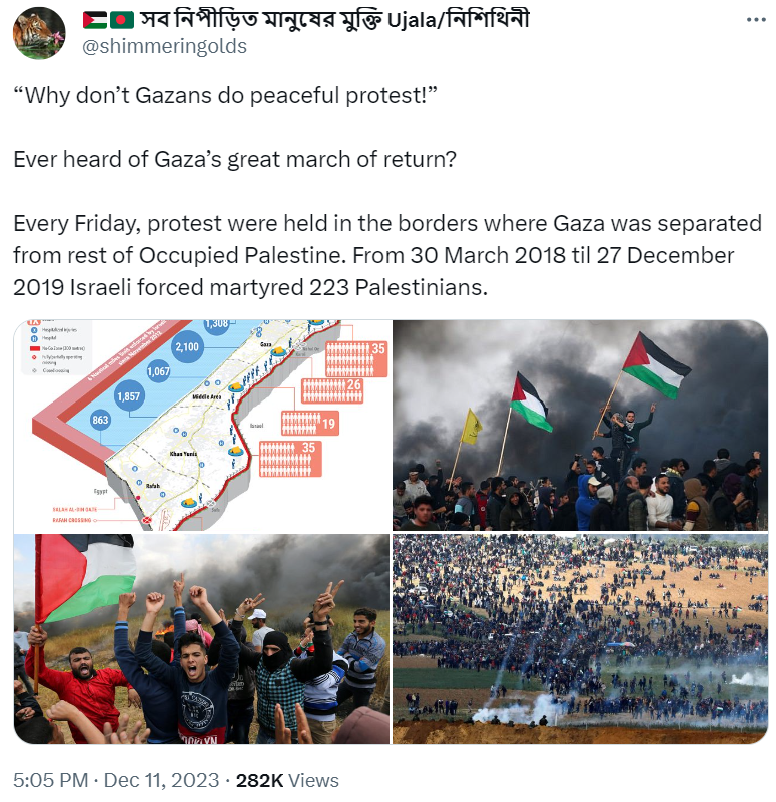

Or in the words of Arundhati Roy:
…Twenty-one years ago, when I delivered “Come September” in New Mexico, there was a kind of omertà in the US around Palestine. Those who spoke about it paid a huge price for doing so. Today the young are on the streets, led from the front by Jews as well as Palestinians, raging about what their government, the US government, is doing. Universities, including the most elite campuses, are on the boil. Capitalism is moving fast to shut them down. Donors are threatening to withhold funds, thereby deciding what American students may or may not say, and how they may or may not think. A shot to the heart of the foundational principles of a so-called liberal education. Gone is any pretense of post-colonialism, multiculturalism, international law, the Geneva Conventions, the Universal Declaration of Human Rights. Gone is any pretence of Free Speech or public morality…
A “war” that lawyers and scholars of international law say meets all the legal criterion of a genocide is taking place in which the perpetrators have cast themselves as victims, the colonisers who run an apartheid state have cast themselves as the oppressed. In the US, to question this is to be charged with anti-Semitism, even if those questioning it are Jewish themselves. It’s mind-bending. Even Israel—where dissident Israeli citizens like Gideon Levy are the most knowledgeable and incisive critics of Israeli actions—does not police speech in the way the US does (although that is rapidly changing, too). In the US, to speak of Intifada—uprising, resistance—in this case against genocide, against your own erasure—is considered to be a call for the genocide of Jews. The only moral thing Palestinian civilians can do apparently is to die. The only legal thing the rest of us can do is to watch them die. And be silent…”
Or even better, listen to Presbyterian minister, Harvard Divinity graduate, Pulitzer-Prize winning New York Times journalist, Chris Hedges (when you have the 1 hour):
An explicitly expansionary, settler colonial terrorist state created by the largest two empires in history (British and U.S.) is using what one military historian calls “one of the most intense civilian punishment campaigns in history…[Gaza] now sits comfortably in the top quartile of the most devastating bombing campaigns ever.” Israelis want to terrorize Palestinians into submission. As they’ve been doing for over 100 years, officials explicitly degrade non-Jewish Palestinians as savages, destroy their agriculture, their infrastructure, museums, city centers, libraries, fishing boats, hospitals, churches, mosques, courts and public buildings, and then blame them just as Europeans did for Native Americans.
These unfolding events reminds one of those Hollywood depictions of sociopaths torturing people in movies; Israeli officials have said Palestinian children have actually brought this on themselves (even from their hospital incubators; they are potential terrorists, after all). It’s their fault they’re being massacred. “We can make it all stop if Hamas just puts down the weapons and surrenders” (the “it” being the annihilation of 1,000 children per week). Entire bloodlines have been wiped out since October 7, and that has been an explicit goal.
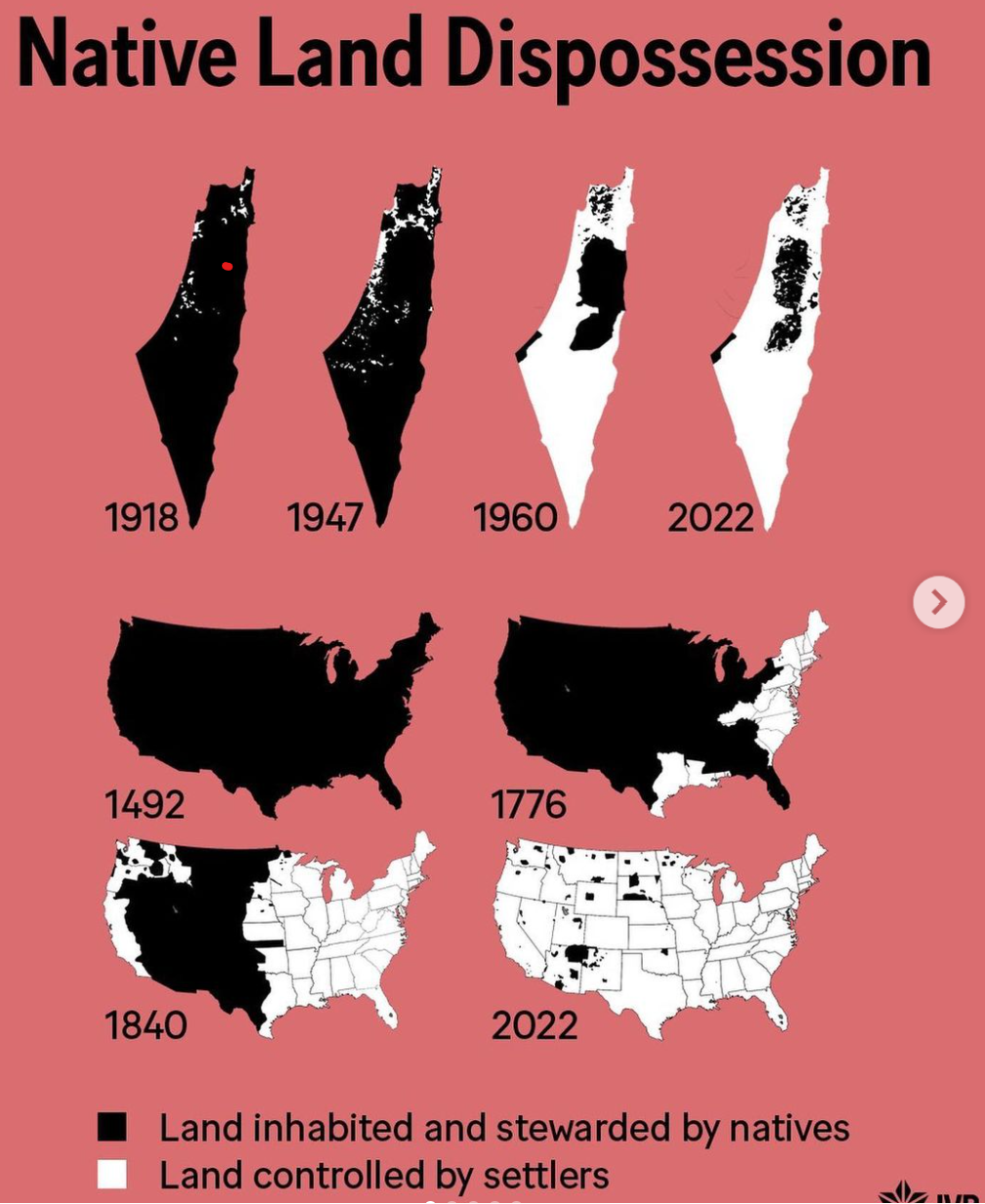
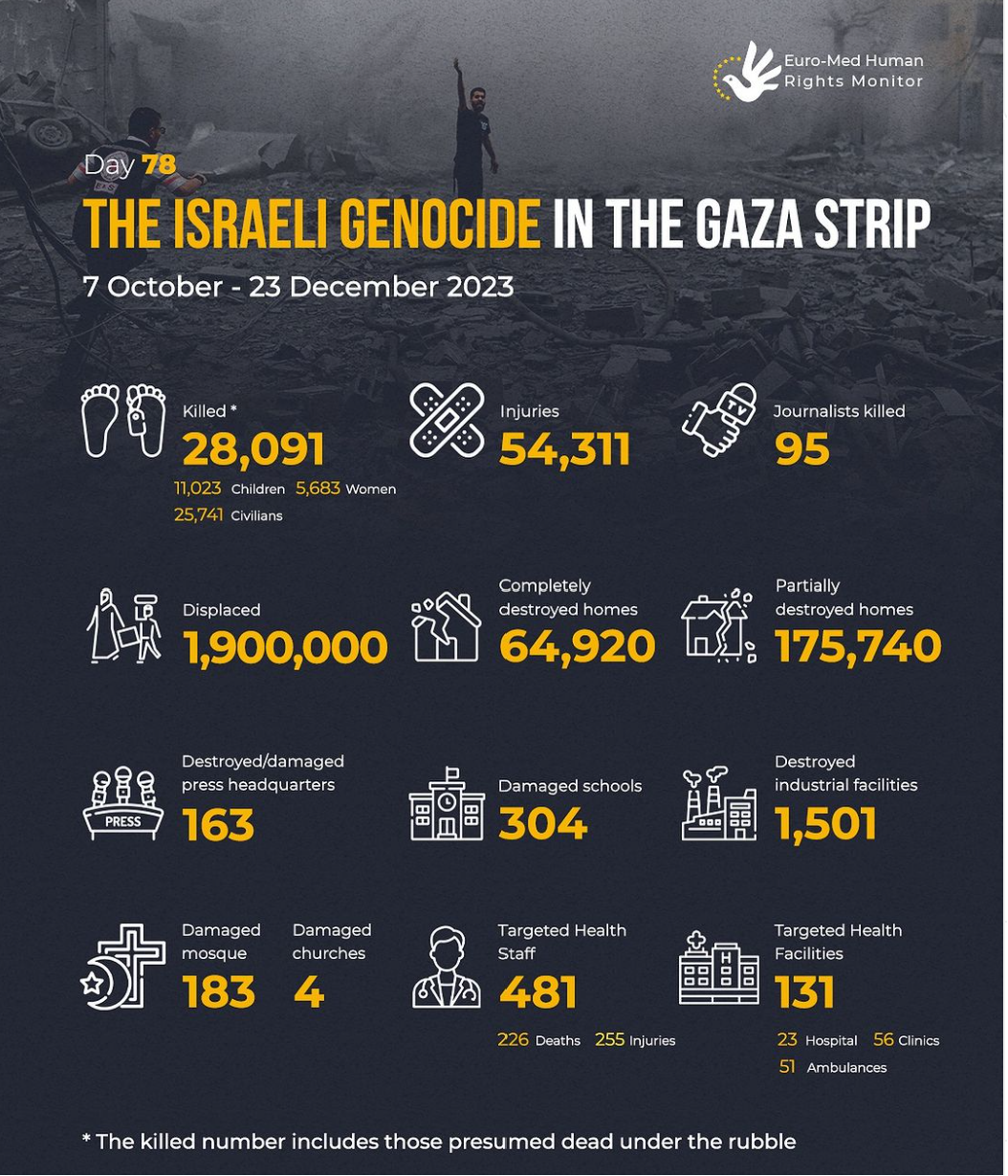
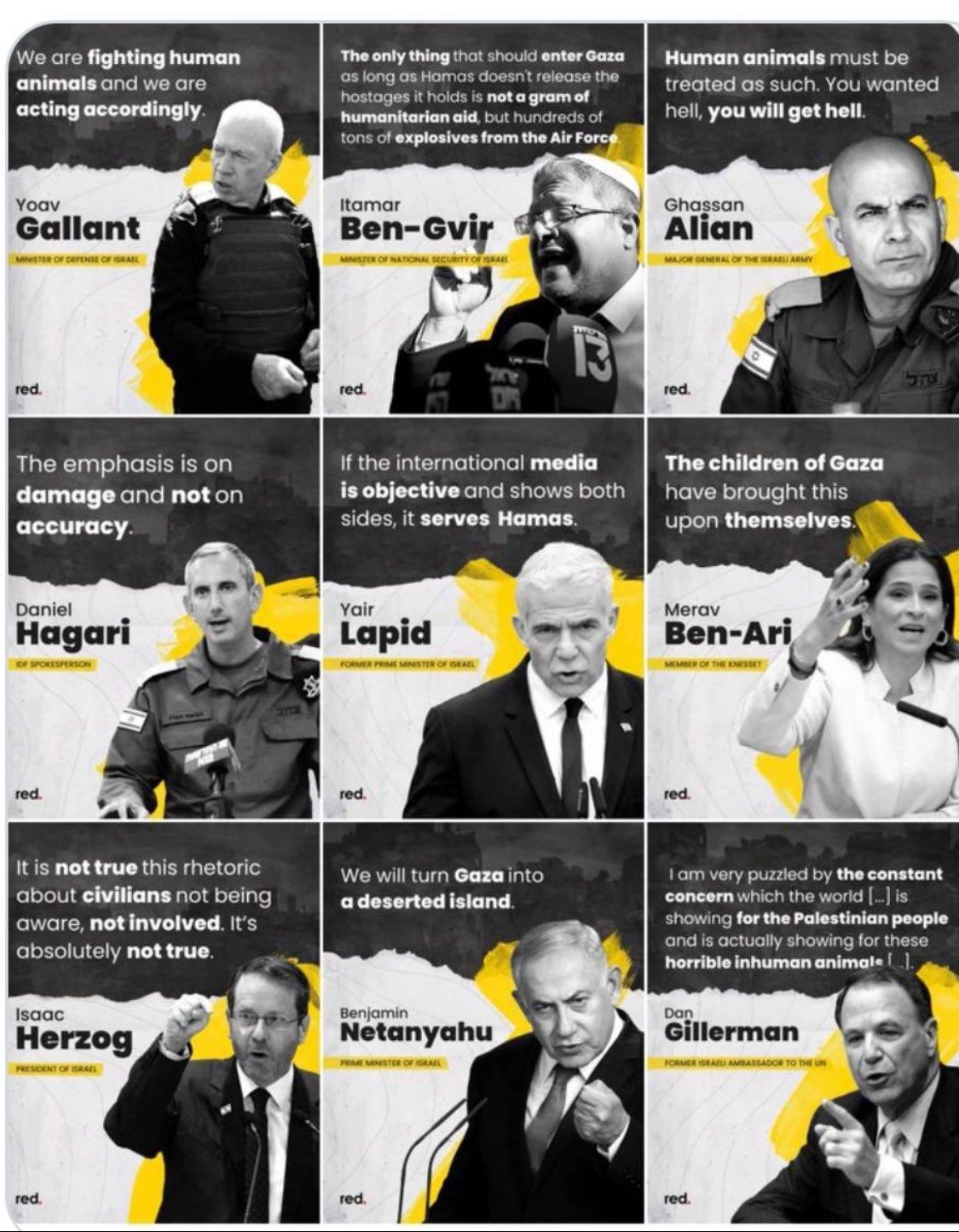
But is this genocide effective? Is the young Hamas group more defeated and are sympathies for Hamas any less? Definitely not. Will crushing all Palestinians end the inevitable effects of Israel’s brutal occupation of Palestine—to say nothing of its endless bombardment of its immediate neighbors, Lebanon, Syria, and Egypt? Highly unlikely.
There are only about 700 Christians left in Gaza (perhaps the oldest Christian community on earth). Speaking truth, the Pope has called out Israeli’s targeting of Christians in and outside churches as “terrorism.” Christmas 2023 itself has been canceled in Bethlehem because of this holocaust, which has eradicated more children every 24 hours than Auschwitz (160/day vs. 120-30 per day); hundreds are stripped naked, numbers scribbled on their flesh, and hauled away in dump trucks to camps (if they haven’t been executed).
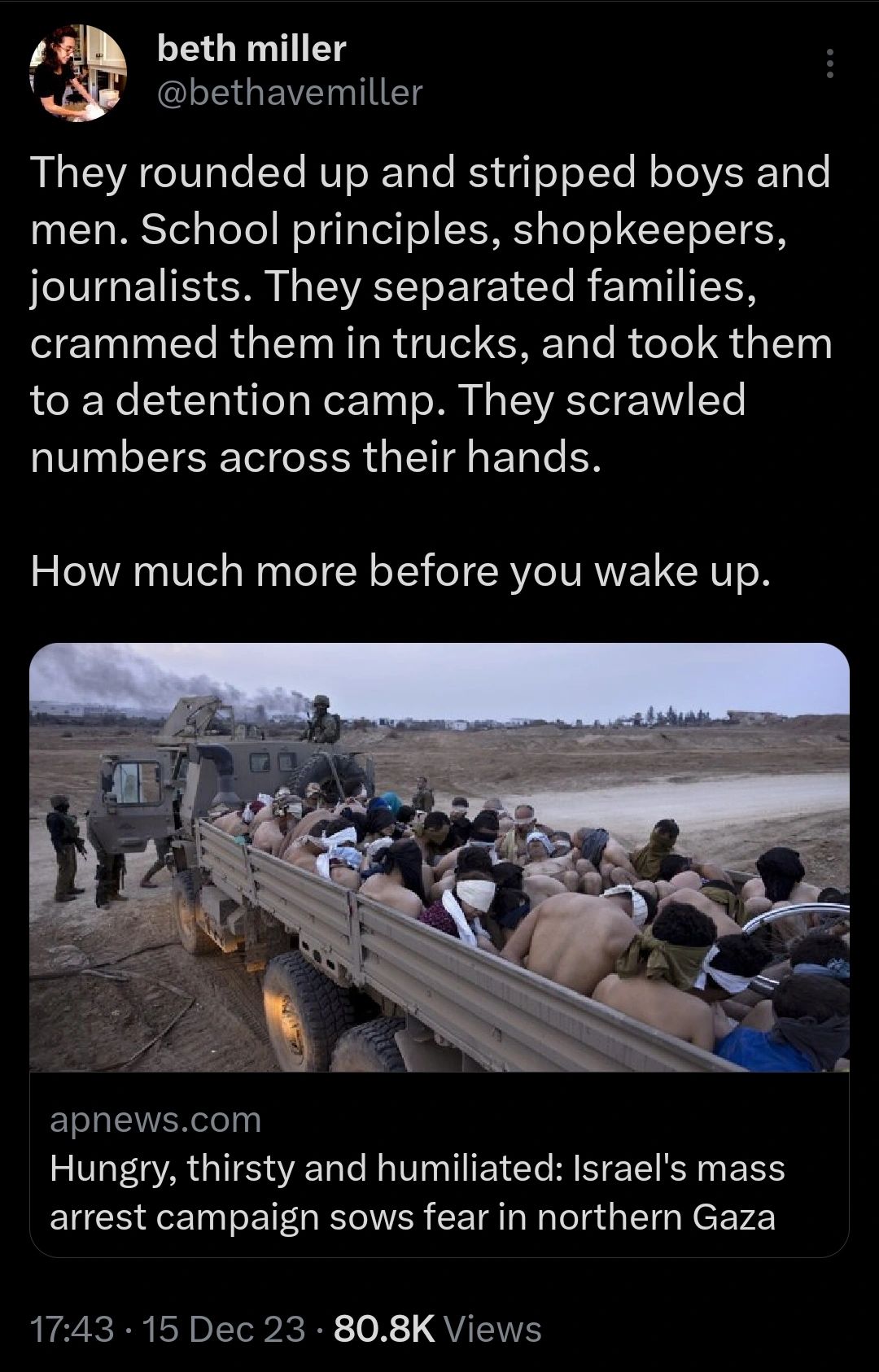
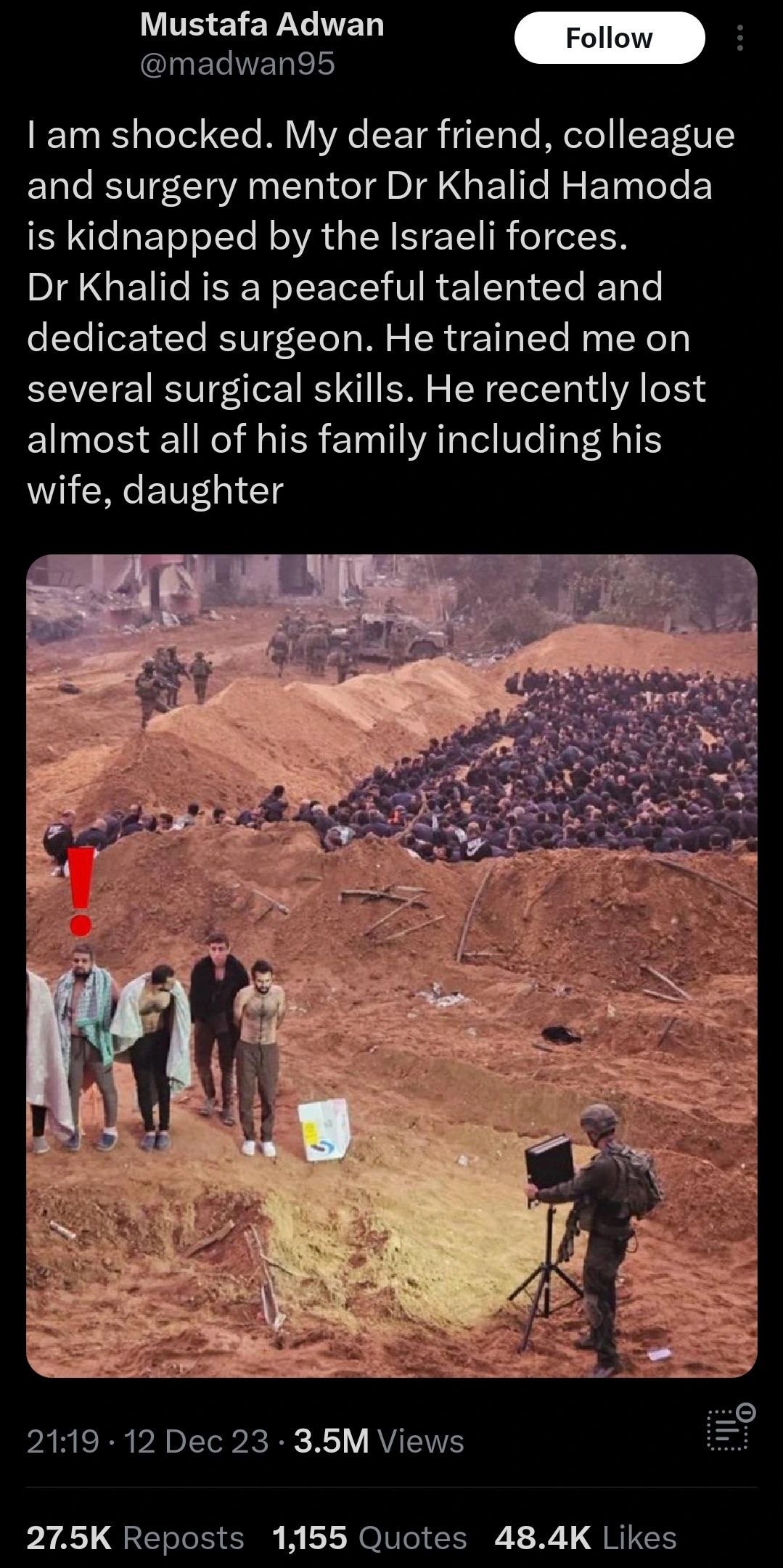
Where would Jesus be if born today? “Under the rubble,” the Lutheran Pastor says (a Palestinian Christian in the West Bank who created the following Nativity scene).

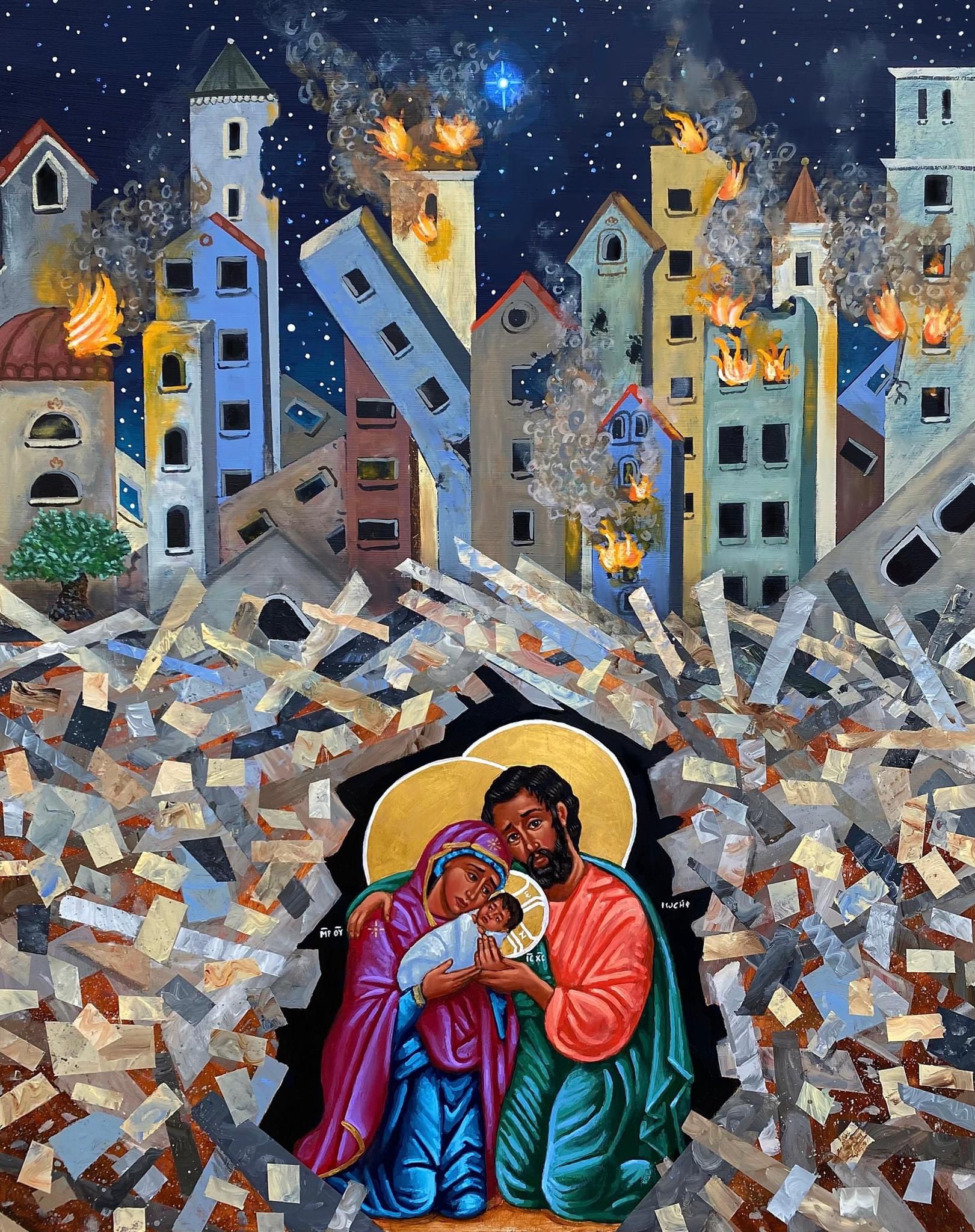
The pastor of this Lutheran church in occupied Palestine, Munther Isaac, gave a sermon on December 23 and told the truth in no uncertain terms:
Gaza today has become the moral compass of the world… If you fail to call this a genocide, that’s on you. It is a sin & a darkness you willingly embrace. Some have not even called for a ceasefire— I’m talking about churches.
The Story of Jesus reminds us of many things that are important. My friend and colleague Glenn Butner reminds us about how to treat refugees and immigrants in his book Jesus the Refugee. My friend and colleague Joerg Rieger at Vanderbilt also remarked:
In sum, liberating Christmas means to reintroduce Christianity and Christmas to a Christ who pursues a course that is different from the course of the dominant powers in politics, economics, and even religion, contrasting the power of the few and the power of the many. The spirit of Christmas is not about Christianity vs. the secular world, Christianity vs. atheism, or Christianity vs. other religions. Instead, the spirit of Christmas is about rejecting the confusion of Christianity and Christ with the dominant powers of the age and reclaiming the alternative ways of Christianity of God in Christ turning around the spirit of empire by walking among the common people. This liberation of Christmas is, therefore, also the liberation of Christianity and of religion, which is so sorely needed today.
I have little to add to these observations, except to say that I am also reminded this year that today’s “terrorist” is tomorrow’s hero. The United States classified Nelson Mandela a terrorist until 2008. Today he is considered a legend freedom fighter. It’s no surprise why, considering his views on peace and violence (and how he challenged western-supported South African apartheid):
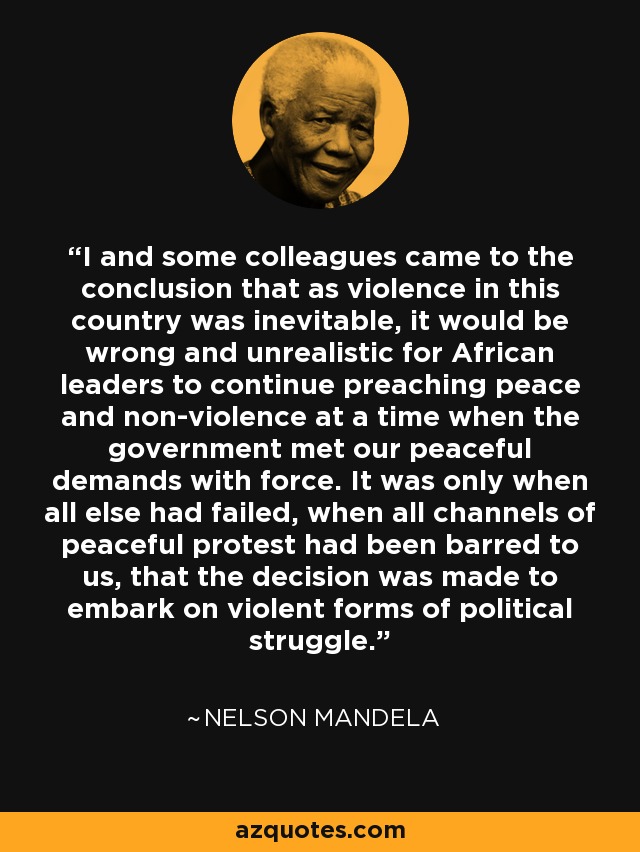
I don’t know what I would do if I was born into a concentration camp (now death camp) like Gaza. I’m not sure I want to know.
But the Palestinians in the first century (like Jesus) and those in the twenty-first century also make me appreciate the brilliance of imperial subversion by the oppressed, especially when they are able to hold back so much legitimate anger. I can see Jesus nibbling on some bread with his friends in the West Bank watching this tire roll next to occupation soldiers and getting a good laugh—even as the danger is real, and every inch and second of their movement is watched by the world’s most advanced intelligence apparatus, a nuclear power, and a growing international weapons manufacturer.
This ability of people to keep both their sanity and their humanity is something worth celebrating. This is what Jesus was known for: for dignifying an oppressed Palestinian population under western military occupation. For constant parties with sex workers and tax collectors around a table of food and wine. That is the historical context of his embodying the “Golden Rule.” This is the context in which we learn that “justice” is, as Cornel West puts it, “love in public.” That is the kind of love we are called to embody. For there is no peace without liberation.
Postscript on Global Awareness
Here’s how the rest of the world is celebrating Christmas this genocidal season:
Much larger protests (the largest in history, in some countries) occurred in previous weeks: